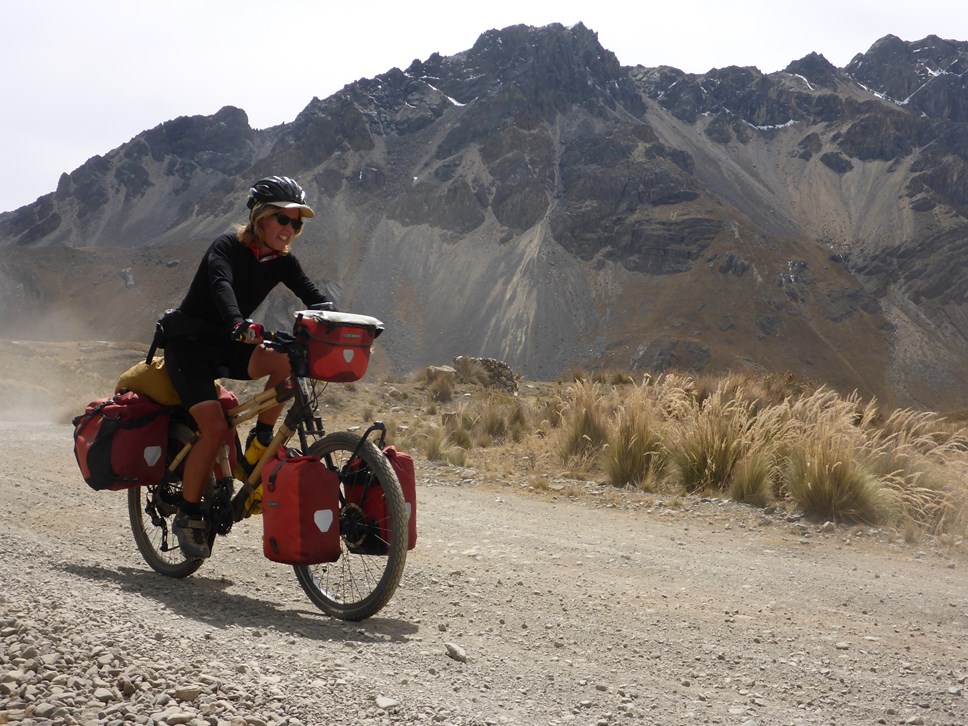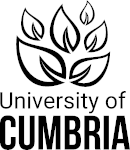
8,000 miles on a bike made of British bamboo
The UK’s first ‘home-grown bicycle’ has successfully crossed a continent, reaching Ushuaia, Patagonia at the tip of South America; a town known as ‘the end of the world.’
University of Cumbria associate lecturer, Dr Kate Rawles, built the bike at the Bamboo Bicycle Club in London from bamboo grown at Cornwall’s world-renowned Eden Project and is due to arrive back in the UK this weekend (April 1 6am at Tilbury.)
Kate and her bike, Woody, left Northern Colombia at the beginning of February last year and travelled 8288 miles, following the spine of the Andes mountains across Colombia, Ecuador, Peru, Bolivia, Chile and Argentina.
“Woody has proved to be an extremely tough and reliable bike, coping with extremes of heat and cold, rain, dryness and altitude,” Kate, who lives in Ulverston, said.
A film of the bike’s construction by University of Cumbria outdoor studies student Lizzi Gilson was awarded Best Student Film by the British Mountaineering Council’s Women in Adventure film competition in 2017.
The goal of The Life Cycle journey is to use the story to raise awareness and inspire action on biodiversity loss.
“Biodiversity loss is an issue every bit as important and challenging as climate change but much less well publicised and understood,” Kate, an associate of the University of Cumbria’s Institute of Leadership and Sustainability, said. “This adventure aims to help change that. We are losing species at a terrifying rate because of deforestation, the loss and degradation of other habitats, climate change, pollution, invasive species, etc. This really matters. Biodiversity loss has enormously negative implications for people via its impact on ‘ecosystem services’ that we cannot live without, like soil fertility, pollinators, clean water.”
Kate, who cycled most of the journey alone, saw a huge variety of landscapes from Pacific beaches to Paramo ecosystems in the high Andes mountains; from dense cloud-forests to deserts.
“The Bolivian salt flats are unlike anything I’ve ever seen before: a huge, hot, hard, white desert covered in hexagonal salt patterns and very cold at night,” Kate said. “In Chile I spent two weeks crossing the Atacama, said to be the driest desert on earth. Very little lives there. It was incredibly moving to see trees and hear birdsong again after that. As for people, almost without exception everyone I met was helpful, kind and interested in my journey. And of course, everyone was intrigued by the bamboo bike. I love the human-magnet affect that Woody has, and the fact that I’m on a biodiversity ride on a bike that used to be a plant!”
In a classic race to the finish ending, Kate was left with nine days to cover about 640 miles after a hold-up on the way south at O’Higgins where the journey south involves a ferry.
“There was a huge backlog of bikers and backpackers all trying to get a seat on a very small boat that kept being cancelled because of the weather,” said Kate. “After that, Patagonia threw everything it had at me: wicked side-winds, almost un-ridable headwinds, rain, hail, gravel roads, a fifteen-mile climb at the end of a long day. Just when I thought there was no way I could make it, I got lucky with a tailwind that lasted for ninety-nine miles!”
Throughout the course of her year-long journey, which she describes as ‘adventure plus’, Kate visited a wide range of biodiversity and nature conservation-related projects, from a school whose entire curriculum is based on turtles to a project aimed at the conservation of the tiny, endangered ‘Titi’ monkeys; from a community fighting to protect an ancient, sustainable fishing culture from over-fishing by industrial trawlers to one supporting local farmers to grow organic coffee in ways that are biodiversity-compatible.
In Patagonia, Kate met Kris McDivitt Tompkins who, with her late husband Doug Tompkins, bought millions of acres and turned them into nature reserves. ‘Kris is one of the world’s biodiversity heroes,’ said Kate. ‘It was a real privilege to meet her. Her foundation was about to donate millions of acres, including Patagonia Park, to the Chilean government to become a National Nature Reserve. The president herself was arriving in person in two days’ time but Kris still made time to meet and talk. This has been a hugely positive aspect of my journey – meeting truly inspiring people and projects and realising how much we can achieve if we really put our hearts and minds into it.’
Kate and Woody are now heading back to the UK, first on a ferry through the Patagonia Fjords and then a cargo ship from Valparaiso to London via the Panama Canal.
“Travelling by cargo ship has a much lower carbon footprint per passenger mile than flying – my aim is to do the whole journey without getting on a plane,” Kate said. “Climate change is a major driver of biodiversity loss and I’m doing all I can to keep my own carbon footprint as low as possible on this trip.”
A ride from Texas to Alaska exploring climate change, lead to a book called The Carbon Cycle shortlisted for the Banff Mountain Festival Adventure Travel Book Award. The next book will be called The Life Cycle which Kate hopes to complete within a year or so of returning home.
More information about The Life Cycle journey, Kate and Woody at:
Web: www.outdoorphilosophy.co.uk
Instagram and Twitter: @CarbonCycleKate
FB: The Life Cycle@biodiversitybikeride
Pictured: Cycling through Cordillera Blanca Peru
Pictured: Tough going in Peru.
Pictured: Bolivia Salt Flats
Pictured: Kate takes protection while crossing the salt flats of Bolivia.
